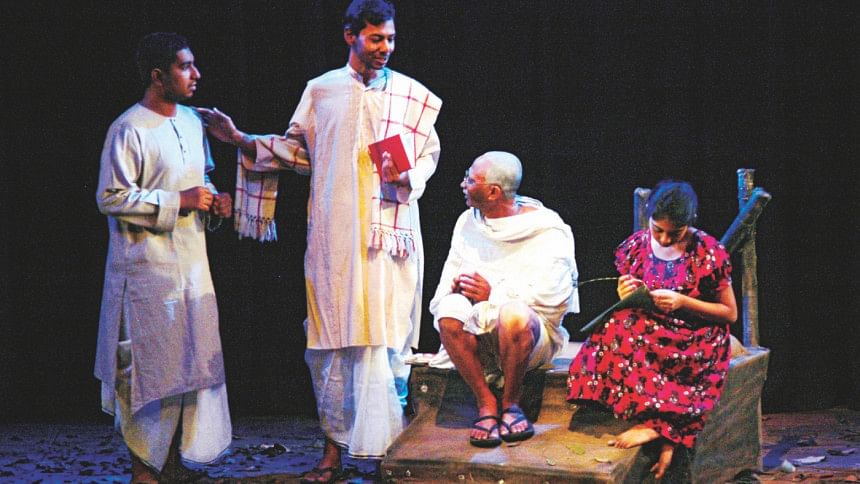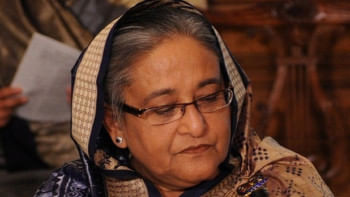Universal Theatre stages ‘Mahatma’ on Gandhi Jayanti

In celebration of Mohandas Karamchand Gandhi's 150th birth anniversary and the International Day of Non-Violence, Universal Theatre staged their acclaimed play, Mahatma, at the Experimental Theatre Hall of Bangladesh Shilpakala Academy on October 2.
The celebration started with a discussion, featuring speeches by Former President of International Theatre Institute, Ramendu Majumdar, renowned theatre personality Ataur Rahman, noted thespian Enamul Haque and Director of Indira Gandhi Cultural Centre, Dr Nipa Choudhury. Secretary General of Bangladesh Group Theatre Federation, Kamal Bayezid and Director of Gandhi Ashram Trust Bangladesh Raha Naba Kumar also spoke on the occasion. Pulak Raha, the chairperson of Universal Theatre, presided over the session.
Mahatma focuses on the communal riot which had begun in Noakhali in 1946. To destroy the communal harmony of the Indian Subcontinent, the British conspired to "divide and rule", and wage a conflict between Hindus and Muslims. In that riot, opportunists and religious extremists burned village after village, and massive loots, killings, kidnappings and persecutions of women took place. The event forced hundreds of Hindu families to relocate for safety. After learning about the riot in Noakhali, Gandhi rushed to the place. He toured the genocide-stricken area, and played a significant role in calming the communal tension. The honorific 'Mahatma' first applied to him in 1914 in South Africa, and is now used throughout the world.
The play is written and directed by Mazharul Haque Pintu. Abul Kalam Azad plays the role of Gandhi. The other cast members include Abul Hossain Khokan, Mazharul Haque Pintu, Shawkat Ali Mansoor, Din Islam Shamol, Abdul Wadud, Sumee Islam, M Rassel, Awlad Hossain, Miraz Hasan, Falguni, Adhora and Rubel. Pulak Raha and Anwar Faridi are consultants for the play. Shamimur Rahman is behind the lighting and Subhasish Dutt Tonmoy is the make-up artist.

 For all latest news, follow The Daily Star's Google News channel.
For all latest news, follow The Daily Star's Google News channel. 



Comments